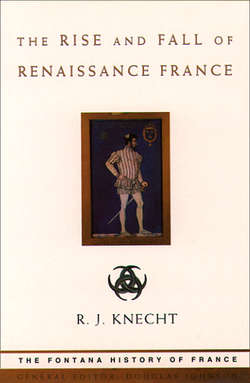Читать книгу The Rise and Fall of Renaissance France - R. Knecht J. - Страница 60
The king breaks his word
ОглавлениеThe first clear indication of Francis’s intentions regarding the Peace of Madrid was his refusal to ratify it. The imperial envoy, de Praet, who came to fetch the ratification, was sent home empty-handed. On 2 April 1526 the king complained that the treaty had been prematurely published in Antwerp, Rome and Florence. His subjects, he said, were angry and asked to be heard before the treaty was ratified. Early in May the viceroy of Naples, to whom Francis had surrendered at Pavia, came to Cognac hoping to persuade Francis to ratify the treaty. He was warmly welcomed by the king, who had not forgotten that he owed him both life and freedom, but he did not allow gratitude to stand in the way of his interests. On 10 May, Lannoy was informed by the king’s council that Burgundy could not be handed over because the king’s subjects would not allow such a diminution of his patrimony. Francis also argued that promises made under duress were null and void. However, since he wished to remain the emperor’s friend, he was willing to honour parts of the treaty which were acceptable to him and to pay a cash ransom. On 4 June the estates of Burgundy, meeting under the presidency of Chabot, endorsed the decision taken by the king’s council. Denouncing the treaty as ‘contrary to all reason and equity’, the deputies affirmed their wish to remain French. A similar declaration was made a few days later by the estates of Auxonne. In July a royal apologia intended for international consumption was published. It stressed the ‘fundamental law’ which forbade the king to alienate any part of his demesne, and enunciated the novel principle that no province or town could change ownership without the consent of its inhabitants. In addition to justifying his breach of faith, Francis acted to prevent an imperial conquest of Burgundy. Chabot inspected the province’s defences and put them on a war footing, but this proved unnecessary as Charles V lacked the means to invade. After an unsuccessful attempt by the prince of Orange to capture Auxonne, Charles disbanded his army. His dream of reuniting the two Burgundies had vanished for ever.
